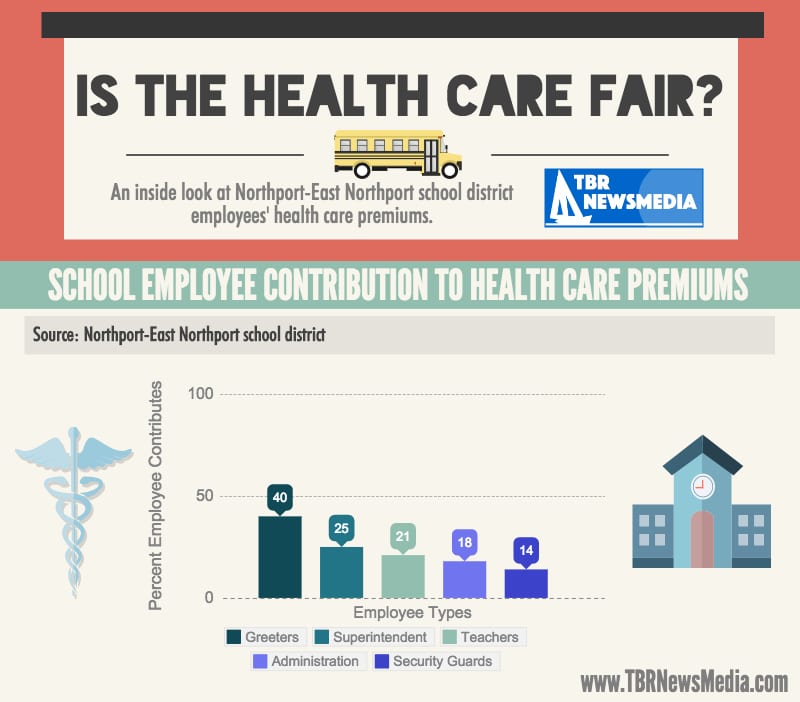Northport school greeters get health insurance
Some question why district’s proposed plan covers less
After a lengthy battle, Northport-East Northport school district’s security greeters have been offered health care benefits. But the fight may not be over.
Although the district has presented health insurance plans to the nine full-time greeters, some say the plans are expensive and don’t treat them the same as other district employees.
The duties of a greeter, also known as a security monitor, include monitoring who is coming and going from a school building, assisting in late arrivals and early releases and helping parents get forgotten items to the students, among other day-to-day tasks that may arise. The position was established about 10 years ago, according to the district supervisor of security, and the district employs one full-time greeter for each of their six elementary schools, two middle schools and one high school.
Under the plans, the district would pay 60 percent of the greeters’ health coverage, according to Diane Smith, the greeter who has led the charge for benefits.
Contracts on the district’s website indicate that it pays 75 percent of superintendent Robert Banzer’s coverage, 82 percent for administrators, 79 percent for teachers and 86 percent for security guards.

Smith said she is grateful the district granted greeters health care coverage —“I’m happy to get that, it’s fabulous to have any kind of a break,” Smith said in an email — but she wants treatment equal to fellow employees, specifically security guards.
When asked about the difference between greeters and security guards, the district said in a statement, “Security guards and security monitors are civil service appointments. Both positions require security certifications and the ongoing completion of security training.”
As is, the employee contribution for the greeters’ proposed insurance on a family plan “will cost us exactly every other entire paycheck,” she said. “How did they come up with that [number]?”
Smith’s salary is $20,000.
According to Smith, the greeters were offered more affordable plans, one of which would have covered 75 percent of health care costs, but they wouldn’t have provided coverage for families. She said in addition to working as a greeter full time, she has been working a second job part time to pay for private health insurance for herself and her two kids.
“Each year the district examines its policies in an effort to further benefit our valued employees,” Banzer said in a statement through the district’s public relations firm, Syntax. “Through prudent budgeting and research with our providers, we are pleased to offer multiple health care coverage options to our greeters. Although the district has not provided this coverage in the past, as it is not required, we felt it was an important step to make this available to them.”
Despite her criticism, Smith expressed gratitude.
“It’s still really good,” she said in a phone interview Monday. “I would not turn it down. It would help my income for sure.”
Smith had a meeting with a district insurance specialist on Wednesday to get some more questions answered and ultimately decide on a plan.
According to her, the greeters must sign up by Feb. 1 to begin getting coverage.








